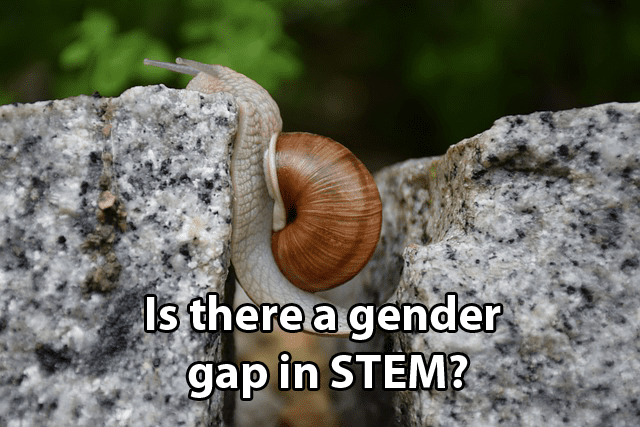
Women in STEM: Scholarships for Underrepresented Fields and Disciplines
Science, Technology, Engineering, and Mathematics (STEM) have long been pivotal in advancing our understanding of the world, driving innovation, and fostering economic growth. Despite the significance of these disciplines, women, especially those from underrepresented groups, continue to face disparities. These disparities hinder their full participation and advancement in STEM fields. In recent years, various scholarship programs have emerged to address these inequalities and support women in pursuing STEM careers. This article explores the importance of women in STEM, highlights some of the underrepresented fields and disciplines, and delves into scholarship opportunities designed to bridge the gender gap.
Importance of Women in STEM
Women bring diverse perspectives and problem-solving approaches to STEM fields, which can lead to more comprehensive and innovative solutions. A diverse workforce is crucial for tackling complex global issues, such as climate change, health pandemics, and sustainable development. Encouraging women’s participation in STEM not only fosters gender equality but also enhances the quality and impact of scientific and technological advancements.
Challenges Faced by Women in STEM
Despite significant progress, women still encounter numerous obstacles in STEM. Societal stereotypes, lack of role models, gender biases, and limited access to resources and opportunities often deter women from entering and advancing in these fields. These challenges are more pronounced in certain disciplines, where women’s representation remains starkly low.
Underrepresented Fields and Disciplines
While women have made commendable strides in some STEM areas, others still lag behind. Physics, computer science, engineering, and mathematics are among the disciplines where women are significantly underrepresented. Addressing this imbalance requires targeted interventions and support systems, including scholarship programs.
Scholarships as Catalysts for Change
Scholarships play a vital role in mitigating financial barriers, providing support, and encouraging women to pursue and persist in STEM careers. Numerous organizations, institutions, and governments have initiated scholarships specifically for women in STEM, particularly in underrepresented fields.
-
Society of Women Engineers (SWE) Scholarships
The Society of Women Engineers offers a range of scholarships to support women pursuing undergraduate and graduate degrees in engineering, engineering technology, and computer science. These scholarships, awarded to both national and international students, aim to encourage women to succeed in these male-dominated fields.
-
Google Women Techmakers Scholars Program
Formerly known as the Google Anita Borg Memorial Scholarship, this program is designed to help women pursue computing and technology degrees. It provides not only financial support but also community-building activities and professional development opportunities.
-
National Center for Women & Information Technology (NCWIT) Aspirations in Computing (AiC) Awards
NCWIT offers the AiC awards to young women in high school who demonstrate interest and achievement in computing. This initiative aims to cultivate an early interest in computing and provide pathways to higher education and careers in technology fields.
-
Microsoft Women’s Scholarship Program
Microsoft provides scholarships to female students pursuing degrees in computer science and related STEM fields. The program is part of Microsoft’s broader commitment to fostering diversity in technology and creating opportunities for underrepresented groups.
-
AAUW’s Selected Professions Fellowships
The American Association of University Women (AAUW) offers fellowships to women pursuing graduate and professional degrees in fields where women’s participation has traditionally been low. This includes scholarships for women in STEM, with a focus on disciplines like engineering, computer science, and physical sciences.
-
Ford Foundation Fellowships
The Ford Foundation awards fellowships to minority students, including women, who show promise for future academic and societal contributions. Their focus includes STEM fields, with a commitment to increasing diversity among scholars and professionals in these disciplines.
The Impact of Scholarships
Scholarships not only alleviate financial burdens but also provide recipients with validation and encouragement. For many women, receiving a scholarship is a turning point that motivates them to overcome challenges and pursue their goals with greater determination. By supporting women in underrepresented STEM fields, these scholarships help create a more inclusive and diverse STEM community.
Mentorship and Networking Opportunities
In addition to financial support, many scholarship programs offer mentorship and networking opportunities. These additional components are crucial for women in STEM, as they provide guidance, professional connections, and a sense of belonging. Mentorship helps women navigate their academic and career paths, while networking opportunities open doors to internships, research opportunities, and job placements.
Institutional Efforts to Support Women in STEM
Beyond individual scholarship programs, educational institutions also have a role in supporting women in STEM. Many universities and colleges have established Women in STEM initiatives, which offer resources, support networks, and targeted programs to enhance women’s participation and success in these fields. Institutional efforts include creating inclusive curricula, fostering supportive environments, and implementing policies that address gender biases.
The Role of Industry Partnerships
Collaboration between academic institutions and industry partners is essential for maximizing the impact of scholarship programs. Industry partners can provide internships, mentorship, and hands-on experiences that enrich women’s education and career preparation. These partnerships help ensure that scholarship recipients are well-equipped to transition into the workforce and excel in their chosen fields.
Global Initiatives and Collaborations
The need to support women in STEM is a global issue, and international collaborations can amplify the reach and impact of scholarship programs. Organizations such as the United Nations and UNESCO promote global initiatives to increase women’s participation in science and technology. These efforts often include scholarship programs, educational campaigns, and international exchanges that foster cross-cultural learning and support.
Conclusion
The importance of women in STEM cannot be overstated. Their unique perspectives and contributions are essential for addressing the complex challenges of our time. While significant progress has been made, there is still work to be done to achieve gender parity in STEM fields, particularly in underrepresented disciplines.
Scholarship programs are powerful tools in this endeavor. By providing financial support, mentorship, and networking opportunities, these scholarships empower women to pursue and excel in STEM careers. The continued efforts of educational institutions, industry partners, and global organizations are crucial for creating a more inclusive and diverse STEM community.
Through sustained commitment and targeted interventions, we can bridge the gender gap in STEM and unlock the full potential of a diverse and innovative workforce. The future of science, technology, engineering, and mathematics depends on the contributions of women, and it is our collective responsibility to ensure they have the support and opportunities they deserve.
















